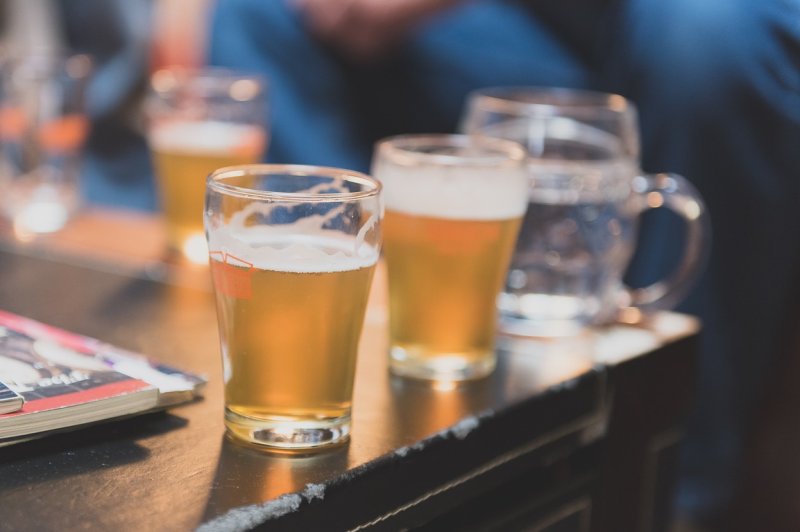People in their 20s and 30s who drink moderate to heavy amounts of alcohol may be more likely to have a stroke as young adults than are nondrinkers or people who drink lightly, a new study suggests. Photo by StockSnap/Pixabay
Nov. 2 (UPI) -- People in their 20s and 30s who drink moderate to heavy amounts of alcohol may be more likely to have a stroke as young adults than are nondrinkers or people who drink lightly, a new study suggests.
And the researchers said stroke risk increased the more years that young adults reported moderate-to-high levels of drinking.
Since the rate of stroke among young adults has been rising over the past few decades, preventing the medical emergency -- which may cause serious disability or death -- by reducing alcohol consumption could have a substantial impact, the scientists added.
The findings appeared Wednesday in Neurology, the journal of the American Academy of Neurology.
"Since more than 90% of the burden of stroke overall can be attributed to potentially modifiable risk factors, including alcohol consumption, and since stroke in young adults severely impacts both the individual and society by limiting their activities during their most productive years, reducing alcohol consumption should be emphasized in young adults with heavy drinking habits as part of any strategy to prevent stroke," Dr. Eue-Keun Choi, a study co-author, said in a news release.
Choi is an interventional cardiologist and professor in the Department of Internal Medicine at Seoul National University Hospital in the Republic of Korea.
The study examined records from a Korean national health database for people in their 20s and 30s. They had four annual health exams, were asked about their alcohol consumption each year and were followed for an average of six years.
The study's participants were asked the number of days per week they drank alcohol and the number of standard drinks they had each time.
People who drank 105 grams or more per week -- equal to 15 grams per day, or slightly more than one drink per day -- were considered moderate or heavy drinkers.
Light drinkers consumed less than 105 grams of alcohol weekly, or less than 15 ounces per day.
A standard drink in the United States contains about 14 grams of alcohol, which is equivalent to 12 ounces of beer, five ounces of wine or 1.5 ounces of liquor, a news release noted.
Of more than 1.5 million participants, 3,153 had a stroke during the nationwide study.
Young adults who were moderate to heavy drinkers for two or more years of the study were roughly 20% more likely to have a stroke than were light drinkers or nondrinkers.
However, as the number of years of moderate to heavy drinking increased, so did the risk of stroke: primarily hemorrhagic stroke, or stroke caused by bleeding in the brain. People with two years of moderate to heavy drinking had a 19% increased risk, which climbed to 22% after three years and 23% after four years of such drinking.
The investigators said they accounted for other factors that could affect the risk of stroke, such as high blood pressure, smoking and body mass index. mainly due to an increased risk of hemorrhagic stroke, or stroke caused by bleeding in the brain.















